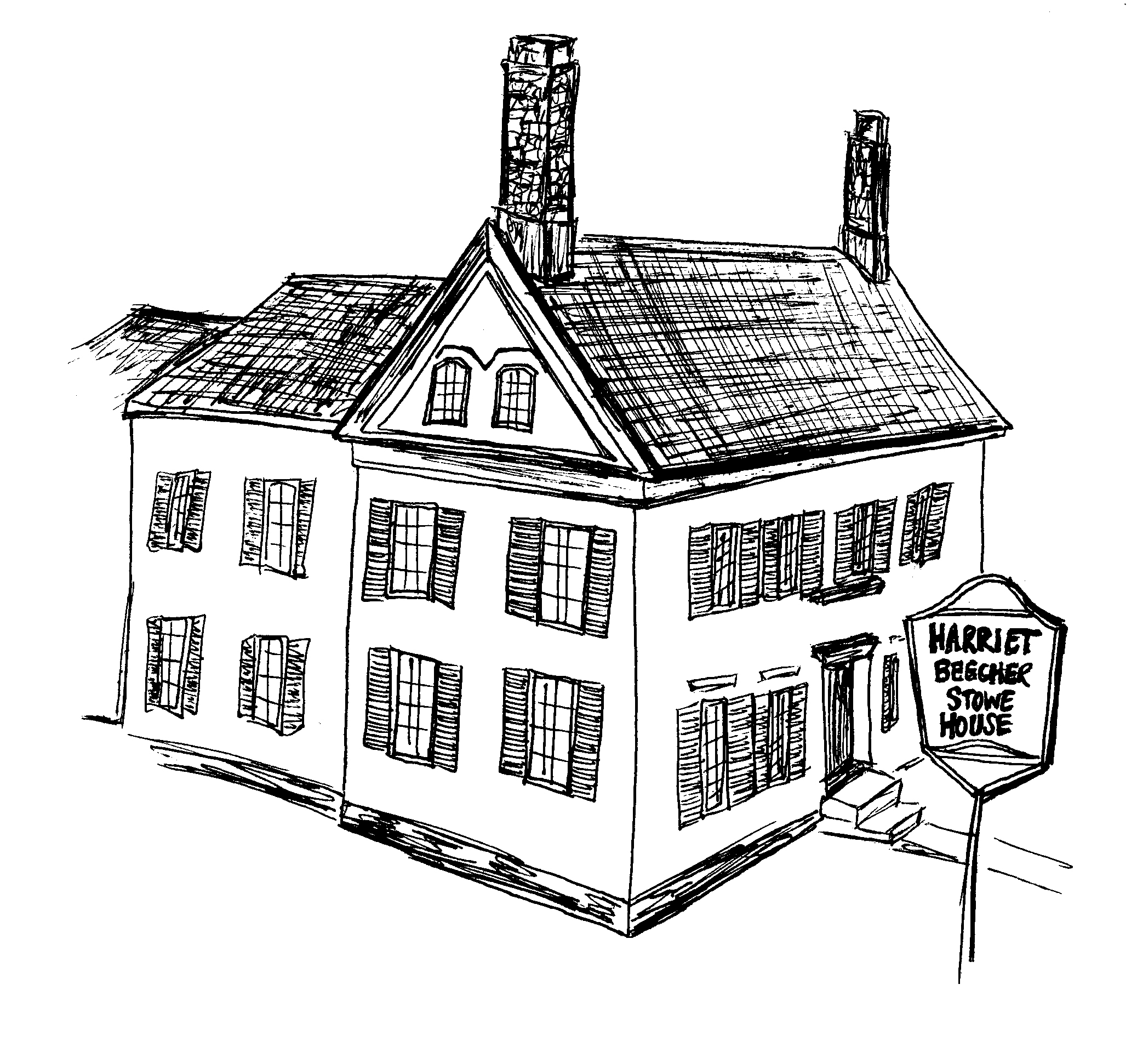Harriet Beecher Stowe: the woman, the myth, the legend
November 15, 2019
It didn’t take me long to realize that the Bowdoin campus is a goldmine for obscure references to the College’s history. Exhibit A: in the fall of my first year, I was strolling through the quad alongside my upperclassman friend as she told me about compass engravings—yes, you read that right—scattered throughout the landscape of the College as some sort of historical reference. I have investigated them during my free time, and strangely they actually do exist. Exhibit B: later in that year, I stumbled into Mass Hall and stopped mid-stride to revel at the historical imprints of the words, “Massachusetts Hall—1802,” on the exterior of the College’s very first building. And exhibit C: as I walk through the entrance of Stowe Hall every day going to and from my various classes and meetings, I can’t help but notice the commanding black-and-bronze plaque that pays homage to Harriet Beecher Stowe, signifying a deeply seated and important past of Bowdoin.

Harriet Beecher Stowe, an abolitionist and civil rights trailblazer, had an immense impact not only on the College during her short-lived time in Brunswick but also on the political landscape of the country. Although conversations of important figures in Bowdoin history center on alumni, Stowe’s impact as a mere affiliate of the College was equally, if not more, important than many of the College’s alumni. Harriet Beecher Stowe, then just Harriet Beecher, became connected to the College through the work of her equally liberal-minded husband and Bowdoin professor and graduate, Calvin Ellis Stowe, and used her free time to turn anti-slavery sentiment into action.
She began writing “Uncle Tom’s Cabin,” an abolitionist novel which all but rocked an America in civil turmoil, in what is now called the Stowe House. Accordingly, this building has been named as a National Historic Landmark as well as a National Underground Railroad Network To Freedom site, due to Stowe’s incredible impact on the lives of so many Americans. Her novel began as a weekly segment of the 1851 “National Era,” a popular anti-slavery newspaper, and was later published as a standalone due to its immense popularity and broad reach. Stowe drew inspiration from her own experiences with fugitive slaves and is said to have used certain slave narratives as her inspiration for this novel.
Stowe then proceeded to write “A Key to Uncle Tom’s Cabin,” a sort-of defense for her novel’s bold yet accurate claims and continued to fight off stubborn southern contempt.
After the Civil War officially broke out, Stowe travelled to Washington, D.C. to meet with then-president Abraham Lincoln regarding abolitionist matters. Upon Stowe’s historic meeting with President Lincoln, the president is rumored to have greeted her with the words, “So you’re the little woman who wrote the book that made this great war.” These words show the fiery nature of Stowe and are the words that carry her legacy with us today. Stowe’s life truly was one of strength and morality; although she herself did not attend Bowdoin, her impact is felt throughout campus.
The plaque in Stowe Hall, which innumerable students pass every day, reads: “Named in honor of Harriet Beecher Stowe, ‘stirrer of the social conscience,’ … ‘an atmosphere of sympathetic influence encircles every human being.’” And so, as we continue with our lives at Bowdoin, let us act upon our own sympathetic influence and build upon the wonder of our college’s historic past.
Comments
Before submitting a comment, please review our comment policy. Some key points from the policy:
- No hate speech, profanity, disrespectful or threatening comments.
- No personal attacks on reporters.
- Comments must be under 200 words.
- You are strongly encouraged to use a real name or identifier ("Class of '92").
- Any comments made with an email address that does not belong to you will get removed.

Bowdoin College and Brunswick are are lucky to be so rich with history. As a Brunswick community member, I loved learning about Harriet Beecher Stowe from Cathi Belcher at the Stowe House each month. I was disappointed that it was discontinued. It was a wonderful Bowdoin College/Brunswick community connection.